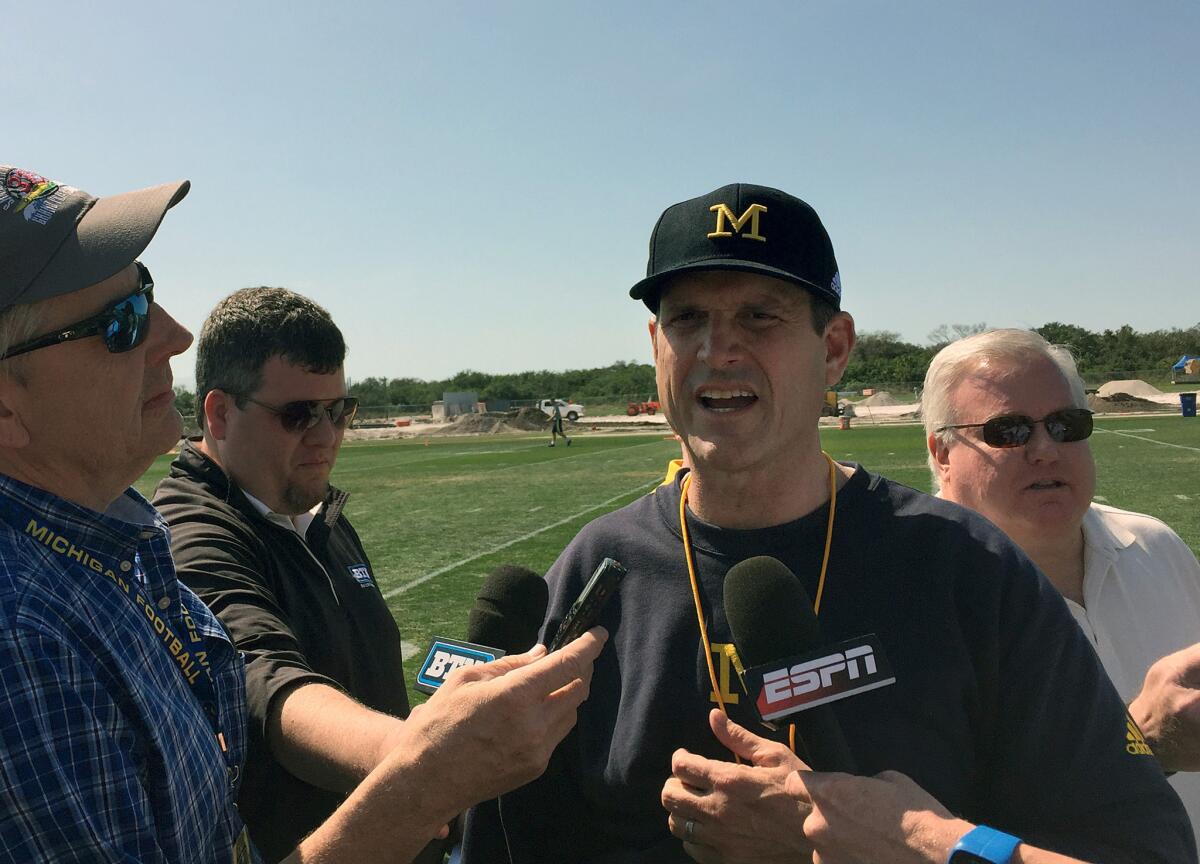Jim Harbaugh bested by SEC as NCAA outlaws satellite camps

Michigan Coach Jim Harbaugh speaks to reporters after a spring practice at IMG Academy in Bradenton, Fla., on Feb. 29.
- Share via
Michigan football Coach Jim Harbaugh created a ruckus with his “Summer Swarm” satellite camp tour last year, when he and his staff hosted or attended camps and clinics in talent-rich states such as Georgia, Florida, Alabama, Texas, California and Pennsylvania.
Harbaugh wasn’t the first to employ satellite camps, but he pushed the boundaries with the breadth of locations his staff visited. That drew the ire of many, particularly in the South where Southeastern Conference and Atlantic Coast Conference coaches and administrators didn’t want outsiders holding camps and potentially attracting players to leave their local schools.
On Friday, the NCAA sided with the SEC and ACC by banning coaches from holding camps or clinics at other campuses.
The NCAA announced that its Division I Council had approved a proposal requiring Football Bowl Subdivision schools “to conduct camps and clinics at their school’s facilities or at facilities regularly used for practice or competition.
“Additionally, FBS coaches and noncoaching staff members with responsibilities specific to football may be employed only at their school’s camps or clinics.”
The ban on satellite camps is effective immediately.
The SEC and ACC had previously forbade coaches from working or holding camps away from their own campuses. Several Big Ten schools used the camps and clinics as an opportunity to showcase their brand and see athletes in other areas of the country.
SEC Commissioner Greg Sankey strongly opposed what he called “recruiting camps” and said the league was prepared to lift its restrictions unless the NCAA stepped in. With Southern states producing the most college football talent, SEC and ACC coaches don’t necessarily have to leave the area to recruit, while Northern schools have routinely prioritized recruiting prospects from the South.
The satellite camps helped coaches in talent-poor areas reach more quality recruits, but they were also an opportunity for players from low-income families to showcase their skills for teams out of their local area that they couldn’t afford to visit on their own.
The Division I Council also approved a proposal to clarify academic integrity rules and make clearer when the NCAA should be involved in a case of academic misconduct involving athletes. The council tabled a proposal that would allow NCAA championship events to be held in states that permit gambling on college sports.
The Associated Press contributed to this report.
More to Read
Go beyond the scoreboard
Get the latest on L.A.'s teams in the daily Sports Report newsletter.
You may occasionally receive promotional content from the Los Angeles Times.











